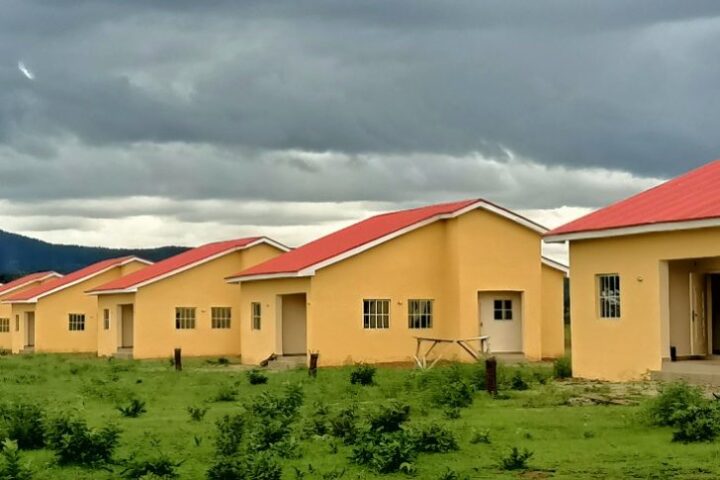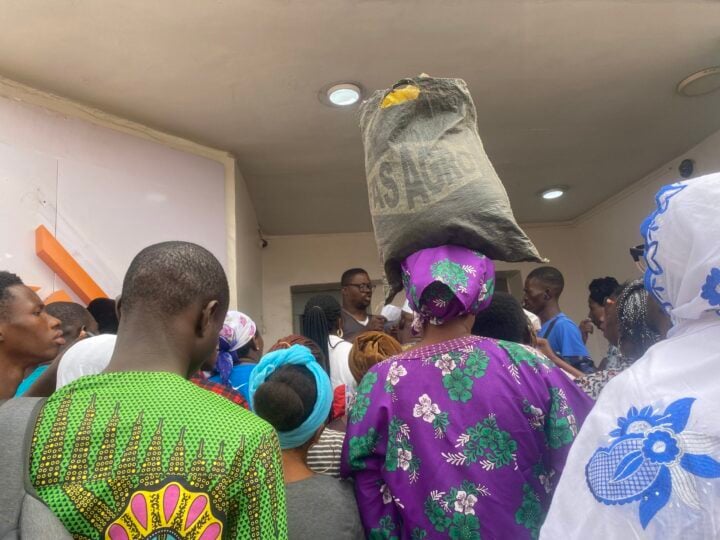Photo: Family Homes Funds Limited (FHFL)
BY LUKMAN SHOBOWALE
At an average population growth of 2.5 percent annually, Nigeria has one of the fastest-growing populations globally. The country’s population is projected to rise to 400m by 2050, making Nigeria the third largest population only after China and India. According to the World Economic Forum, Nigeria and six other countries, including China, India, USA, Indonesia, Pakistan and Brazil already account for more than half of the global population.
While the population growth presents the country with the potential of a large market and virile human capital, the associated challenges are also imminent; they include low purchasing power, rural-urban migration, pressure on basic amenities and infrastructural gap.
The corollary is that while rapid population growth is an asset, it can as much be a recipe for poverty, inequality and deprivation. This is especially corroborated by the Nigerian Bureau of statistics NBS, Nigeria Multidimensional Poverty Index released in November 2022, which revealed that 133 Million Nigerians are living in multidimensional poverty. According to the Bureau, the increase in the level of poverty was a result of deprivations in sanitation, healthcare, food security and housing. These socio-economic challenges have made the collective aspiration of inclusive and sustainable development almost elusive for Nigeria.
Advertisement
For many Nigerians, access to decent and affordable housing remains a critical challenge. The housing challenge is especially exacerbated by the rise in rural-urban migration, which continues to stretch the limited public infrastructure in urban centres. The depth of the challenge is already quite clear, according to the International Human Rights commission IHRC, more than 28 million Nigerians lack access to decent and affordable housing, and this is in tandem with the estimates of the Federal Mortgage Bank of Nigeria (FMBN), which project that Nigeria requires at least 28 million housing units to close the Housing gap.
However, the challenge did not start today; Nigeria’s housing deficit has grown progressively from 7 million housing units in 1991 to 12 million in 2007, 14 million in 2010 and subsequently 28 million housing units in 2022. The combination of a growing urban population, lack of an efficient mortgage system, poverty, increasing construction costs, high inflation and declining household income, have made access to decent and affordable housing difficult for many Nigerians. The Central Bank of Nigeria in 2019, note that only 10% of Nigerians who desire to own a home can afford it. When compared to 72% in the United States and 78% in the United Kingdom, the estimate is largely inadequate for the size of our economy.
Despite the enormity of the housing challenge, there is a lot that suggests Nigeria can turn the tide around, close the housing deficit and steadily provide for the country’s needs. The Federal Mortgage Bank of Nigeria (FMBN) estimates that N21trn will be required to close the housing gap, this clearly suggests that the government cannot address the challenge alone and that only a collaboration between the government and private sector players will be adequate.
Advertisement
More than at any other time in the country’s history, national and sub-national governments must collaborate and enable the private sector to invest in the housing sector. At least two factors justify the need for private sector leadership at this time, the first one is that only the private sector can mobilise the level of funding that is required to meet the deficit, the other one is that only the private sector can commit the capital required over a long term. In addition to the private sector-led investment, the government can also collaborate with the private sector to provide low-cost housing schemes that can accommodate a larger segment of the economy, especially those in the formal sector.
To boost private sector participation, the government must provide an enabling environment through incentives such as tax concessions, and the elimination of bureaucratic bottlenecks in the land administration system. Mortgage reform and an efficient credit system are equally required to maximise investment in the sector. The dwindling household incomes and low purchasing power as a result of inflation means not many Nigerians can afford a house at once, as with other climes, homeownership is often acquired under a mortgage system that does exert a strain on the finances of individuals. Most developed economies thrive on an efficient credit system. To therefore close the housing gap, the government must adopt a special financing strategy that provides people with financing options at a single digit interest rate. This will incentivise Nigerians who are willing to take advantage of the investment in the sector.
On the monetary side, the government must also address the high level of inflation, which has led to a proportionate increase in the cost of construction materials, an admission that the Housing sector is also affected by the general health of the economy. These among other vital reforms are required to close the housing gap.
There is no doubt that Nigeria must aspire to close its housing gap within the shortest time possible. While the government has a major role to play, only private sector-led investment provides the capital that can guarantee the level of investment that is required to close the gap and clear the deficit.
Advertisement
Lukman Shobowale is the co-founder of Dukiya Investments.
Views expressed by contributors are strictly personal and not of TheCable.






